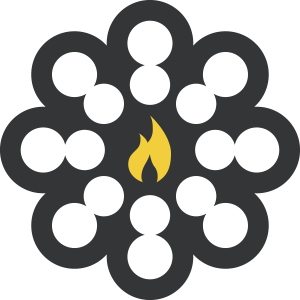Transformative Experiences: The New Physical is Mental, Part 1
Recently we were discussing with consumers what types of answers they would want from smart sensors. Of course, they wanted heart rate--table stakes. They could name off a number of biometric requirements. I was impressed. The most requested new feature they wanted from their sensors was a ‘recovery score’. Not how long they were in beast mode. Not how many steps they had taken. Not even their sleep number. What they wanted to know is how long after a hard workout or a stressful day at work did they need to rest to recover. And not just ‘rest’ as in sit like a lump in a Barcalounger. They wanted know how much meditation, connecting, and stretching they needed for specific high performance activities: biking, hiking, etc.
I’ll get back to why this is important in a moment.
Last week in our February Collaborative meeting, Mary Putman shared some research that shows just how interconnected the physical side of health is to the emotional/mental side of health. Using longitudinal data collected from social tools, Mary described a major shift in the way that we think about the term ‘health.’ It used to be that when we described ‘healthy’ we meant ‘physically healthy’ and when we described our mental wellbeing we had to add the modifier ‘mentally’ to ‘healthy’. ‘Mentally healthy’ was almost a metaphor, as in “I’m going to pretend that the mind is like the physical body. It’s not, but just go with me on this, okay.” We all knew that mental health was a distinct and separate discipline from ‘health.’
Well, not anymore. Consumers today no longer differentiate between physical health and mental health. There is no Cartesian separation of mind/body. They talk on Twitter about being healthy and they very much mean that it’s both! Body/mind, Mind/body. They exercise to heal the mind. They recover mentally to heal the body.
Mary’s research showed that in 2019 people were likely to talk about the relationship between mental health in the following terms:
By focusing on specific mental health conditions (bipolar, bpd)
By talking about the amount of time it takes to get an appointment with a therapist.
By discussing the side effects of medications.
In other words, the term ‘mental health’ referred to mental sickness and help.
But in 2020, things changed. By then, people were using the term ‘mental health’ most often when discussing the following:
The importance of vitamin D, hobbies, and hygiene
Whether or not apps and meditation were helpful
That mental health was just as important as physical health
As the reason they were leaving social media
As the reason they were fixing or leaving relationships
In other words, the term had shifted from a sickness to cure to a key indicator of overall balance and healthiness.
Then, in 2021, the term shifted more. The topics discussed focused much more on the physicality of mental health. For example, people talked about:
Taking Sertraline
Usefulness of CBT to help reframe thoughts
Importance of space: headspace & physical
Using therapy to increase performance
Paying attention to alcohol consumption when taking medication
And, removing toxic relationships to keep the mind clear.
In essence, 2021 was the year that physical health and mental health became the same thing. You could improve your performance in either by removing toxins, paying attention to what you intake, and managing your relationships.
When someone says to you today that they are healthy, they don’t mean that they eat well, sleep well, and get lots of exercise. They mean, that they are healthy across all dimensions of wellbeing. There are implications for this shift that need to be discussed and go well beyond this posting.
So, now. Why were the consumers talking about recovery data so interested in very specific recovery scenarios? Given what Mary and her team found, the answer is simple: recovery is part of overall health. And overall health isn’t just physical ability. It’s mental ability, spiritual ability, and emotional ability. They saw the tools of recovery like meditation as a means to a greater benefit than just mental health.

